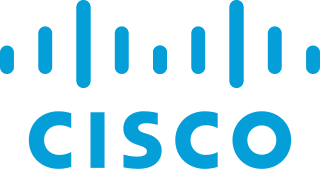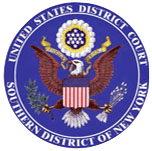Kazaa Media Desktop was a peer-to-peer file sharing application using the FastTrack protocol licensed by Joltid Ltd. and operated as Kazaa by Sharman Networks. Kazaa was subsequently under license as a legal music subscription service by Atrinsic, Inc. According to one of its creators, Jaan Tallinn, Kazaa is pronounced ka-ZAH (/kæˈzaː/).
Napster is a set of three music-focused online services. It was founded in 1999 as a pioneering peer-to-peer (P2P) file sharing Internet software that emphasized sharing digital audio files, typically audio songs, encoded in MP3 format. As the software became popular, the company ran into legal difficulties over copyright infringement. It ceased operations and was eventually acquired by Roxio. In its second incarnation, Napster became an online music store until it was acquired by Rhapsody from Best Buy on December 1, 2011.
FastTrack is a peer-to-peer (P2P) protocol that was used by the Kazaa, Grokster, iMesh and Morpheus file sharing programs. FastTrack was the most popular file sharing network in 2003, and used mainly for the exchange of music mp3 files. The network had approximately 2.4 million concurrent users in 2003. It is estimated that the total number of users was greater than that of Napster at its peak.

Cisco Systems, Inc. is an American multinational technology conglomerate headquartered in San Jose, California, in the center of Silicon Valley. Cisco develops, manufactures and sells networking hardware, software, telecommunications equipment and other high-technology services and products. Through its numerous acquired subsidiaries, such as OpenDNS, Webex, Jabber and Jasper, Cisco specializes in specific tech markets, such as the Internet of Things (IoT), domain security and energy management. Cisco is incorporated in California.

Novell, Inc. was an American software and services company headquartered in Provo, Utah. Its most significant product was the multi-platform network operating system known as Novell NetWare, which became the dominant form of personal computer networking during the second half of the 1980s and first half of the 1990s. At its high point, NetWare had a 63 percent share of the market for network operating systems, and by the early 1990s there were over half a million NetWare-based networks installed worldwide. Novell technology contributed to the emergence of local area networks, which displaced the dominant mainframe computing model and changed computing worldwide. Novell became instrumental in making Utah Valley a focus for technology and software development.
Grokster Ltd. was a privately owned software company based in Nevis, West Indies that created the Grokster peer-to-peer file-sharing client in 2001 that used the FastTrack protocol. Grokster Ltd. was rendered extinct in late 2005 by the United States Supreme Court's decision in MGM Studios, Inc. v. Grokster, Ltd. The court ruled against Grokster's peer-to-peer file sharing program for computers running the Microsoft Windows operating system, effectively forcing the company to cease operations.
MGM Studios, Inc. v. Grokster, Ltd., 545 U.S. 913 (2005), is a United States Supreme Court decision in which the Court unanimously held that defendant peer-to-peer file sharing companies Grokster and Streamcast could be sued for inducing copyright infringement for acts taken in the course of marketing file sharing software. The plaintiffs were a consortium of 28 of the largest entertainment companies.
p2pnet.net was an online news website which mainly covered stories which are relevant to peer-to-peer file sharing (P2P).

Slyck.com is a defunct website that once produced unique original file sharing news stories, shared aggregated technology news stories from the World Wide Web, and has a user forum.
This is a timeline of events in the history of networked file sharing.
Nikki Hemming is the CEO and part owner of Sharman Networks and President of LEF Interactive, an agency based in Sydney, Australia, responsible for promoting and developing Kazaa, a peer-to-peer file sharing network, since 2002. As such, she has been a figure in the dispute between peer-to-peer networks and the music industry including a legal case between the Australian Record Industry Association (ARIA) and the Recording Industry Association of America (RIAA).

Elektra v. Santangelo, 78 U.S.P.Q.2d 1702 was a case filed by Elektra Entertainment Group against Patricia Santangelo, a mother of five. In the suit it was alleged that she illegally shared six songs over KaZaA file-sharing network. The suit was eventually dismissed in 2007 with prejudice by a federal judge. The RIAA later sued two of Ms. Santangelo's children. A default judgment was entered against one of them, Michelle Santangelo. Ms. Santangelo's 16-year-old son Robert Santangelo has interposed counterclaims against the plaintiffs, including "failure to warn".
Sharman is a surname, and may refer to
Peer-to-peer file sharing is the distribution and sharing of digital media using peer-to-peer (P2P) networking technology. P2P file sharing allows users to access media files such as books, music, movies, and games using a P2P software program that searches for other connected computers on a P2P network to locate the desired content. The nodes (peers) of such networks are end-user computers and distribution servers.
Arts and media industry trade groups, such as the International Federation of the Phonographic Industry (IFPI) and Motion Picture Association of America (MPAA), strongly oppose and attempt to prevent copyright infringement through file sharing. The organizations particularly target the distribution of files via the Internet using peer-to-peer software. Efforts by trade groups to curb such infringement have been unsuccessful with chronic, widespread and rampant infringement continuing largely unabated.

CNET is an American media website that publishes reviews, news, articles, blogs, podcasts, and videos on technology and consumer electronics globally, owned by Red Ventures since 2020. Founded in 1994 by Halsey Minor and Shelby Bonnie, it was the flagship brand of CNET Networks and became a brand of CBS Interactive through that unit's acquisition of CNET Networks in 2008, which was the previous owner prior to October 30, 2020. CNET originally produced content for radio and television in addition to its website and now uses new media distribution methods through its Internet television network, CNET Video, and its podcast and blog networks.

Copyright infringement is the use of works protected by copyright law without permission for a usage where such permission is required, thereby infringing certain exclusive rights granted to the copyright holder, such as the right to reproduce, distribute, display or perform the protected work, or to make derivative works. The copyright holder is typically the work's creator, or a publisher or other business to whom copyright has been assigned. Copyright holders routinely invoke legal and technological measures to prevent and penalize copyright infringement.
File sharing is the practice of distributing or providing access to digital media, such as computer programs, multimedia, documents or electronic books. File sharing may be achieved in a number of ways. Common methods of storage, transmission and dispersion include manual sharing utilizing removable media, centralized servers on computer networks, World Wide Web-based hyperlinked documents, and the use of distributed peer-to-peer networking.

The Recording Industry Association of America (RIAA) is a trade organization that represents the recording industry in the United States. Its members consist of record labels and distributors, which the RIAA says "create, manufacture, and/or distribute approximately 85% of all legally sold recorded music in the United States". The RIAA headquarters is in Washington, D.C.

RealNetworks, Inc. is a provider of Internet streaming media delivery software and services based in Seattle, Washington, United States. The company also provides subscription-based online entertainment services and mobile entertainment and messaging services.







